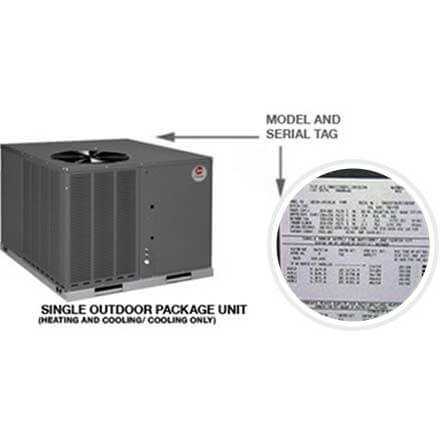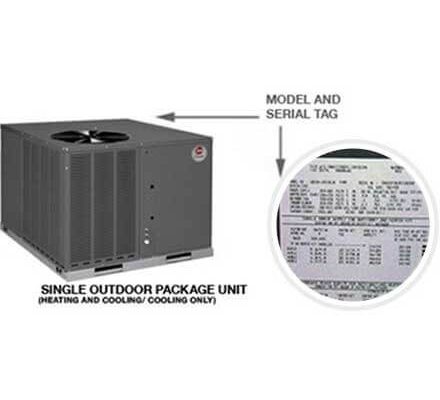
Here’s the thing: registering a brand new Rheem system for warranty is straightforward, but used equipment is where things get tricky. Imagine getting handed the keys to a car but realizing the warranty won’t follow you unless you jump through some hoops—or sometimes, not at all. That’s the situation plenty of folks find themselves in after buying or inheriting a pre-owned Rheem HVAC unit. If you’re in that boat, let’s break down exactly how Rheem handles their warranties, what “registration” really means, and what options you have if your system is already a year or two old.
How Rheem HVAC Warranty Registration Works
Let me explain what “registering” a Rheem HVAC warranty actually means. When you buy a brand-new Rheem system, you—or your installer—are supposed to register the unit online with Rheem. It’s like raising your hand and saying, “Hey, I’ve got this system, and I’d like that better warranty coverage, please.” Why does registration matter? Because it usually extends your warranty from the basic, unimpressive coverage to something much longer—sometimes up to ten years on major parts.
The process is pretty straightforward: you’ll need the unit’s model and serial number, your installation date, and your contact info. If you skip this step, you’re usually stuck with the shortest and least helpful version of the warranty. Imagine buying that new car and never filling out the paperwork at the dealership—you wouldn’t get those extended perks.
Now, this is all well and good if you’re the original owner. But what about secondhand systems? What happens if you buy a used Rheem unit off Craigslist or inherit one from a previous homeowner? That’s where the plot thickens.
Can You Transfer a Rheem HVAC Warranty?
Here’s something not everyone realizes: Rheem’s standard warranty is almost always for the **original purchaser only**. In other words, it’s not automatically transferable to you if you buy the system used. There’s a difference between being able to *register* a new unit for warranty and being able to *transfer* that warranty when the unit changes hands.
Rheem (like most big HVAC brands) wants to reward the person who bought the unit first, not anyone down the line. Sometimes, certain higher-end models or specific programs do allow for a warranty transfer—usually within a narrow time window (often 60–90 days of home sale). But you’ll need to dig into the paperwork or call Rheem directly to check if your model qualifies.
If you’re considering buying a house with a newer Rheem system, it’s wise to ask the seller for any warranty documentation and registration info up front. Trying to “retroactively” claim a warranty as a secondhand owner is almost always a dead end—unless that transfer policy was followed to the letter when the house changed hands.
Registering a Used Rheem HVAC System: Is It Possible?
So, can you register a used Rheem HVAC system for warranty? Honestly, in most situations, the answer is *no*. Warranty registration is designed for brand-new systems, straight from the installer or manufacturer. If the previous owner already registered the system, the clock started ticking for them, not you.
Even if you go online and fill out the registration form with your own name, Rheem’s team will check the system’s original installation date and ownership history. If it’s not your name on the original paperwork, chances are good you won’t get any “extended” coverage.
There’s also the technicality that *resetting* a warranty doesn’t work like resetting a remote or syncing a new battery—you can’t just push a button and start over. The warranty is tied to the unit’s serial number, install date, and original purchaser information. Trying to sidestep this process is a bit like putting fresh shoes on an old car and expecting the odometer to turn back to zero.
What Is Actually Covered If You Buy Used?
You might be wondering, “Well, what do I get if I buy a used Rheem HVAC unit? Am I just totally out of luck?” Here’s the straight answer: unless the warranty was officially transferred (which, again, is rare and tricky), you probably *won’t have any manufacturer’s warranty* at all. The only exceptions are units that are still within the basic, non-registered coverage period—usually five years, but only if you can prove original install date and ownership through documentation.
If you bought your used Rheem because it was a steal, just double-check the math. Replacement parts or service calls can add up quickly if something major goes wrong. Always ask for any paperwork, receipts, or warranty cards from the seller. Even then, Rheem will usually want to see *original proof*—not just a handwritten note or a promise from the previous owner.
Sometimes, home sellers will sweeten the deal by purchasing a third-party home warranty or an extended service contract. These aren’t the same as a factory warranty, but they can give you some peace of mind. Just know the difference before you shake hands and hand over the cash.
Alternatives to a Manufacturer’s Warranty
If you’ve realized you can’t register your used Rheem HVAC system for warranty, don’t panic—there are still ways to cover your bases. Home warranties, for example, are third-party service plans that can protect you from expensive breakdowns. They’re not always as generous as a factory warranty, and there’s usually a deductible for each service call, but they can be a lifesaver for older systems.
You could also look for local HVAC contractors who offer their own maintenance agreements. These might include free tune-ups, discounts on parts and labor, or priority service in emergencies. It’s a different kind of peace of mind, but one that can save money (and stress) if your used Rheem starts acting up.
Lastly, some homeowners simply create a “just-in-case” savings fund for HVAC repairs. It’s not glamorous, but setting aside a little cash up front means you’re not caught off guard when the inevitable happens. Think of it like self-insuring your comfort—no phone calls, codes, or registration required.
Why HVAC Warranties Aren’t Easily Transferred
You might be thinking, “Why don’t companies like Rheem make it easier to transfer warranties?” I get it—it feels a little unfair, especially if your used unit is only a couple years old. But from the manufacturer’s point of view, things get murky fast when system ownership changes hands.
First, there’s the issue of installation quality. HVAC warranties are kind of an insurance policy against defective parts, but only if the system was correctly installed by a licensed pro. When a unit is moved, resold, or transferred, it’s hard for Rheem to guarantee the system was handled according to their specs. Did someone try a DIY fix? Was the system left in storage for months? Did the circuit board get zapped during removal? These things matter for troubleshooting, syncing performance, and even safety.
Second, warranty fraud is a real concern. If anyone could reset and register a secondhand HVAC system for a brand-new warranty, you can imagine the headaches for both the company and honest customers. That’s why serial numbers and original purchase info are locked in the moment the system ships—or is installed by a pro.
Key Insight: Manufacturer warranties are meant to protect the first buyer and ensure only properly installed and maintained systems are eligible for coverage. Aftermarket transfers introduce too many unknowns for brands like Rheem to guarantee the same level of support.
How to Check If Your Used Rheem Still Has Coverage
If you’re uncertain about your system’s status, here’s a step-by-step way to check if any coverage remains:
- Locate the serial and model numbers. These are usually on a metal plate inside the unit’s cabinet or on the outdoor condenser.
- Find original paperwork. This could be a receipt, warranty card, or installation invoice showing the unit’s first owner and date of installation.
- Contact a Rheem-authorized dealer or customer support. Give them the numbers and ask what, if any, warranty remains. Be prepared to prove the chain of ownership if the coverage is still active.
- Ask about any transfer options. If your system is still within a possible transfer period, act quickly and follow all required steps—they’re strict about timing and documentation.
A good HVAC technician can also verify whether the system is still in good shape or has been reset, tampered with, or improperly paired with new components (which can void any lingering warranty, too).
Universal Warranty Policies vs. Brand-Specific Rules
Here’s where a lot of people get confused. Some assume there’s a “universal” approach to HVAC warranties, but in reality, every brand does things their own way. For instance, a generic or universal extended warranty you buy from a big-box store won’t always apply to a Rheem system. Each manufacturer—whether Rheem, Trane, Carrier, or Lennox—has their own codes, rules for syncing a warranty to the unit, and very specific troubleshooting and documentation needs.
So, if you’re shopping around, compare what *each brand* offers. Some are more generous with transfers to new homeowners, but rarely do they allow warranty “resets” for a used unit sold on the open market. And no, there’s no secret code or factory reset button that’ll let you slip in as the new owner after a secondhand sale.
When Buying Used Rheem HVAC Makes Sense
Despite all the warranty limitations, there are times when buying a used Rheem system still makes good sense. Maybe you’re flipping a house or need an urgent, cheap replacement for a rental property. As long as you understand you’re taking on some risk (and losing out on registration perks), you can weigh the savings against the potential maintenance costs.
Just be honest with yourself: are you handy with troubleshooting, or will you need to call a pro for every weird noise the system makes? Can you budget for repairs or even a full replacement down the line? For some, the lower upfront cost is worth it. For others, peace of mind matters more—and going with a new system, full warranty and all, is the smarter move.
Final Thoughts: Navigating the Used Rheem HVAC Warranty Maze
So, can you register used Rheem HVAC systems for warranty? In most cases, the answer is *no*—the original warranty sticks with the first owner, and transfers are rare, time-sensitive, and full of red tape. That doesn’t mean buying used is always a mistake, but you should walk in with your eyes open.
If you’re considering a secondhand unit, do your homework: check the serial number, ask for all original paperwork, and talk to Rheem support or a trusted installer before making decisions. Knowing what coverage you do (or don’t) have can save a lot of frustration—and maybe even a call to the bank—down the road. And if a warranty isn’t in the cards, consider alternative protections like home warranties, maintenance agreements, or simply budgeting for future repairs.
At the end of the day, a used Rheem HVAC system can be a smart buy if you know the risks, ask the right questions, and have a plan for what comes next. And hey, even if you can’t register for that gold-standard factory warranty, you’re at least a step ahead of those who don’t bother checking at all.
